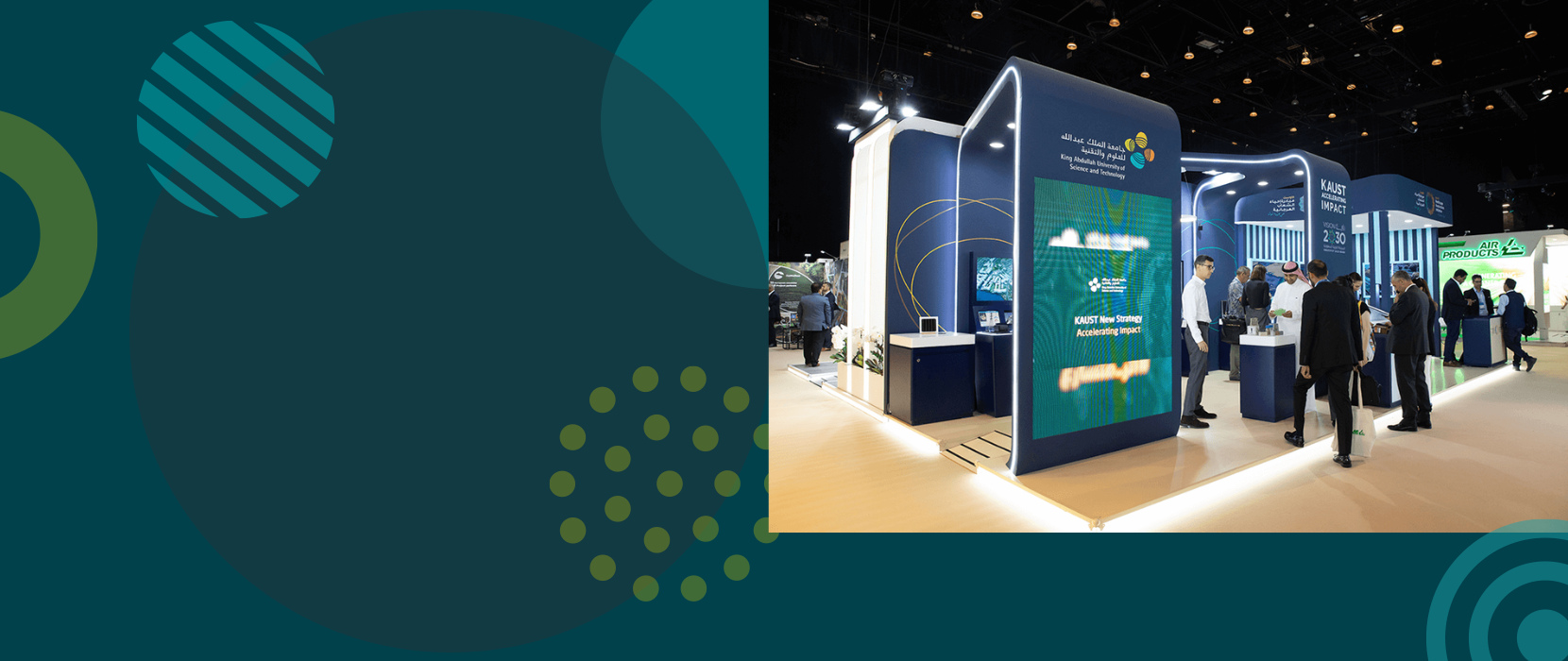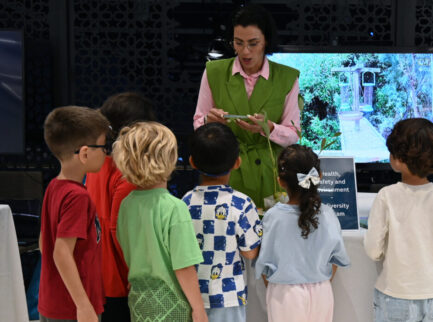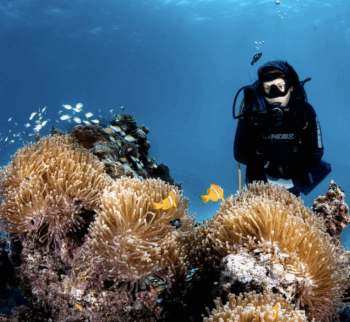With climate challenges intensifying, global forums like COP28 are crucial for uniting nations and driving sustainability efforts. At COP28 in Dubai, December 2023, KAUST demonstrated its commitment to both national and global sustainability goals by showcasing research and innovations in clean energy, marine biodiversity conservation, and sustainable development. The university’s participation extended through different zones of the event, with KAUST Experts participating in events across the blue zone, green zone, climate action innovation zone, and the largest Kingdom’s sustainability showcase – the Saudi Green Initiative (SGI) pavilion. Below you can find some highlights from the Conference.
Addressing carbon emissions is crucial to mitigating climate change and transitioning to a low-carbon future, especially in the realm of clean energy. One notable highlight in this area was Professor William Roberts’ work on cryogenic carbon capture, which showcased a technology capable of removing CO₂ from the exhaust gases of fossil power plants and industrial facilities. This innovation supports the Saudi Ministry of Energy’s goal of developing energy-efficient technologies in line with their Circular Carbon Economy vision, encouraging high-emitting industries to adopt more sustainable practices.
Similarly, hydrogen plays a pivotal role in achieving a sustainable energy transition due to its versatility and low carbon footprint. Professor Mani Sarathy participated in the Hydrogen Transition Summit, highlighting hydrogen’s potential as a sustainable energy source. He discussed infrastructure upgrades, necessary policy developments, and the role of governments in supporting this transition, emphasizing the collaboration and incentives needed to realize hydrogen’s full potential.
In the marine sector, KAUST is working directly to protect plant and animal biodiversity in Saudi Arabia, especially in the Red Sea. Associate Professor Raquel Peixoto showcased her research on enhancing coral resilience through microbiology, demonstrating how beneficial microorganisms can improve coral health against climate-induced stressors. This research not only plays a vital role in preserving biodiversity but also provides valuable insights that can inform policy decisions. By contributing to our understanding of threatened ecosystems, the work supports the development of evidence-based strategies for marine conservation, potentially influencing policy frameworks at both national and international levels.
Additionally, Professor Carlos Duarte, who is also the Executive Director of CORDAP (Coral Research and Development Accelerator Platform) – a global G20 initiative aiming to accelerate research and development to preserve and restore coral reefs worldwide – highlighted the importance of public-private partnerships in coral restoration efforts. By fostering collaboration between governments, research institutions, and private sector partners, CORDAP provides valuable insights for developing policies that balance economic development with environmental preservation.
Serving as an avenue to scale up these coral reef conservation ambitions, the KAUST Coral Restoration Initiative at Shusha, represented by Professor Mark Gillan, was prominently featured in the KAUST booth at the Innovation Zone, being another key example of KAUST’s impact on marine conservation. Arising from a multi-stakeholder collaboration that is mobilizing researchers and the wide coral restoration industry, the initiative aims to build one of the world’s largest coral nurseries to support coral reef restoration efforts. This strategy highlights the importance of cross-sector partnerships in safeguarding marine biodiversity.
KAUST’s participation in COP28 showcased its alignment with Vision 2030 and RDI pillars, exemplifying the university’s commitment to driving sustainable change through research and collaboration. This engagement aligns with several UN SDGs, including SDG 7, Affordable and Clean Energy, by advancing clean energy technologies; SDG 13, Climate Action, through initiatives aimed at reducing emissions and enhancing energy efficiency; SDG 14, Life Below Water, by promoting marine biodiversity conservation and coral restoration efforts; and SDG 17, Partnerships for the Goals, which is reflected in KAUST’s cross-sector collaboration with industry, governmental bodies, and international stakeholders.
To learn more about KAUST’s participation at COP28, click here.




